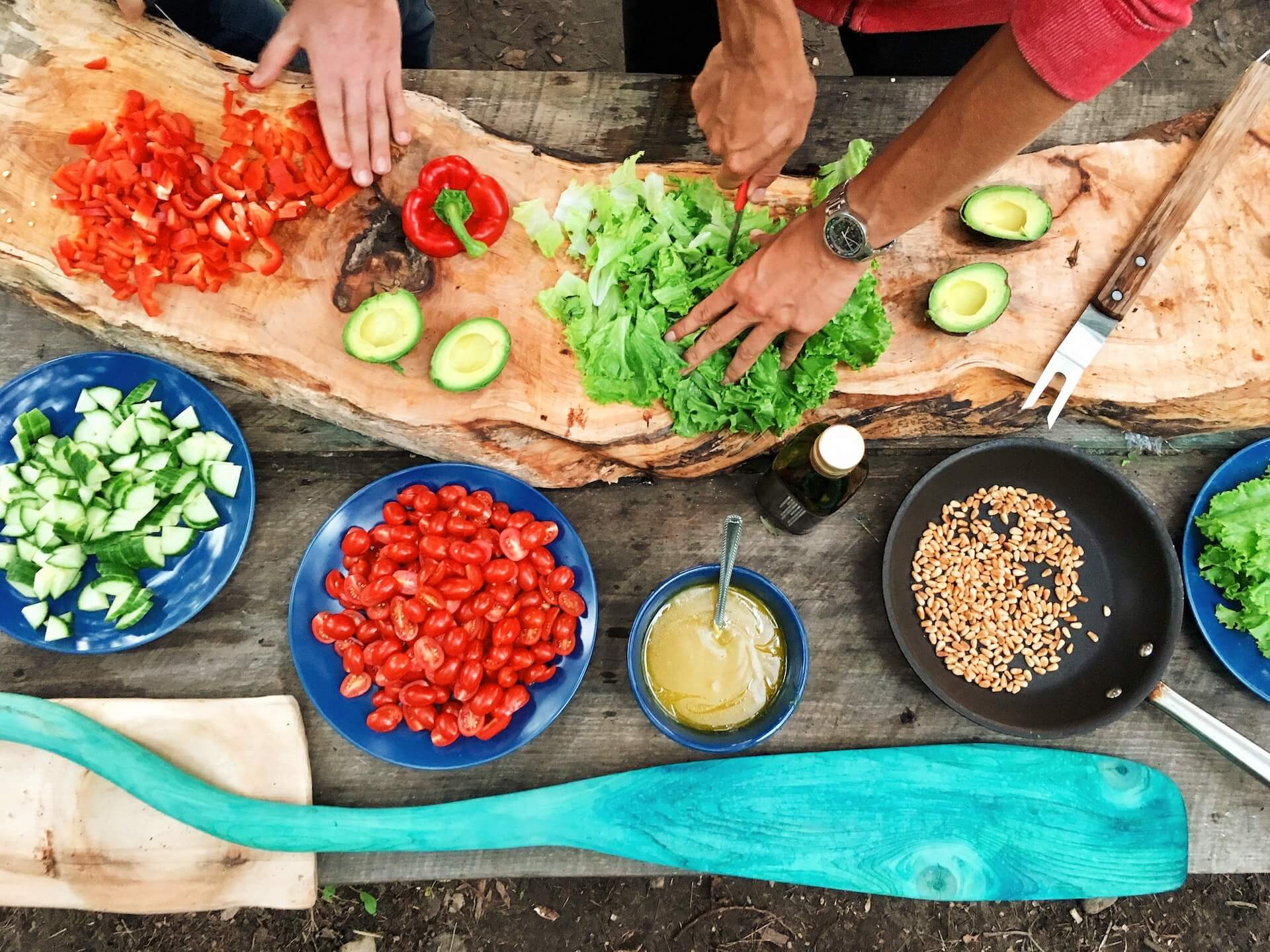Advertisement


If you’re looking to improve your diet, incorporating more plants is a great place to start. Eating a plant-based diet has been linked to numerous health benefits, including reduced risk of heart disease, diabetes, and certain cancers. Plus, plants are packed with essential nutrients, fiber, and antioxidants that can help keep your body functioning properly.
But if you’re not used to eating a lot of fruits and vegetables, it can be challenging to know where to begin. Luckily, there are plenty of simple ways to add more plants to your diet without feeling overwhelmed or sacrificing taste. Here are seven easy ways to incorporate more plants into your meals:
If you’re looking to improve your overall health and well-being, incorporating more plants into your diet is a great place to start. Not only are plant-based foods packed with essential vitamins and minerals, but they also offer a host of other benefits that can help you look and feel your best.
Here are just a few of the many benefits you can experience by incorporating more plant-based foods into your diet:
By incorporating more plant-based foods into your diet, you can enjoy all of these benefits and more. Whether you’re looking to improve your overall health or simply want to feel your best, adding more plants to your plate is a simple and effective way to achieve your goals.
Adding more plants to your diet is a great way to improve your health and reduce your environmental impact. Here are seven ways to incorporate more plants into your diet:
Don’t try to overhaul your diet all at once. Start by making small changes, such as adding a serving of vegetables to your lunch or replacing a meat-based meal with a plant-based one. Small changes are easier to stick to and can add up over time.
Try out new plant-based recipes to keep things interesting. Look for recipes that feature your favorite vegetables or try out a new ingredient you haven’t used before. There are many resources online to find plant-based recipes, including blogs, cookbooks, and recipe websites.
Plant-based proteins, such as beans, lentils, tofu, and tempeh, are a great way to add more protein to your diet without relying on meat. Experiment with different types of plant-based proteins to find ones that you enjoy.
Vegetables are a great source of vitamins, minerals, and fiber. Add more vegetables to your meals by filling half your plate with vegetables or adding them to soups, stews, and casseroles.
Smoothies and juices are a great way to pack in a lot of fruits and vegetables in one meal. Experiment with different combinations of fruits and vegetables to find ones that you enjoy.
Fruits and vegetables make great snacks. Keep a bowl of fruit on your counter or cut up vegetables and keep them in the fridge for a quick and healthy snack.
Growing your own herbs and vegetables is a great way to ensure that you have fresh produce on hand. Even if you don’t have a lot of space, you can grow herbs in a windowsill or on a balcony.
Making the switch to a plant-based diet can be challenging, but it’s not impossible. Here are some tips to help you maintain a plant-based diet:
Planning ahead is key to maintaining a plant-based diet. Take some time each week to plan out your meals and snacks. This will help you stay on track and avoid reaching for unhealthy options.
Make a grocery list and stick to it. Try to buy fresh, whole foods like fruits, vegetables, whole grains, and legumes. These foods are nutrient-dense and will help you feel satisfied.
Transitioning to a plant-based diet is a journey, not a destination. Don’t beat yourself up if you slip up and eat something that’s not plant-based. Instead, focus on making progress and doing the best you can.
Remember, it’s not about being perfect. It’s about making small changes that add up over time.
Having a support system can make all the difference when it comes to maintaining a plant-based diet. Connect with other plant-based eaters in your community or online. Share recipes, tips, and advice.
You can also enlist the help of a registered dietitian or nutritionist. They can help you create a balanced meal plan and ensure you’re getting all the nutrients you need.
There’s always more to learn about plant-based eating. Keep educating yourself on the benefits of a plant-based diet and the best ways to incorporate more plants into your meals.
Read books, watch documentaries, and attend cooking classes. The more you know, the easier it will be to maintain a plant-based diet.
Congratulations! You have learned 7 ways to incorporate more plants into your diet. By following these tips, you can improve your health, reduce your environmental impact, and enjoy delicious meals.
Remember, it’s important to eat a variety of fruits, vegetables, whole grains, legumes, nuts, and seeds to get all the nutrients your body needs. You don’t have to become a vegetarian or vegan to enjoy the benefits of a plant-based diet. Simply adding more plants to your meals can make a big difference.
Try experimenting with new recipes, flavors, and textures to keep things interesting. Don’t be afraid to ask for help or advice from a registered dietitian or nutritionist if you have any questions or concerns.
By making small changes over time, you can create a sustainable and enjoyable plant-based lifestyle that works for you. Good luck!
Advertisement

Advertisement

-Advertisement-